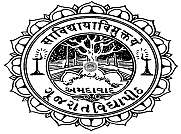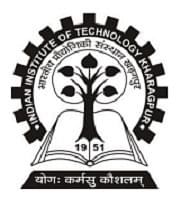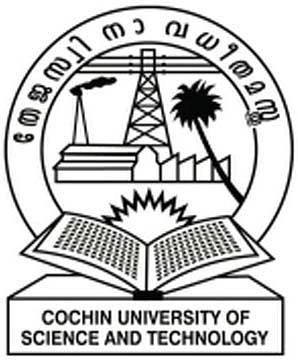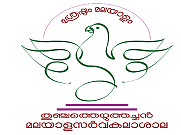Introduction about Ph. D Political Science
Ph.D. in Political Science from best college is a doctoral-level academic program designed to prepare
students for advanced research, teaching, and leadership roles in the field of political
science. Political science is the systematic study of political institutions,
processes, behaviour, and ideas, with a focus on understanding and analysing
political phenomena at local, national, and international levels. A Ph.D. in
Political Science provides students with the knowledge, skills, and expertise
to engage in original research, contribute to scholarly debates, and address
complex political issues facing societies around the world.
Here's an
introduction to Ph.D. in Political Science:
v Advanced Study of Political Theory and
Thought: Ph.D. programs in
Political Science offer advanced coursework in political theory, philosophy,
and intellectual history. Students explore foundational texts, theories of
justice, democracy, power, authority, and sovereignty, as well as contemporary
debates in political thought. They engage critically with diverse perspectives
and develop their own theoretical frameworks to analyse political phenomena.
v Empirical Research and Methodological
Training: Ph.D. students
receive rigorous training in research methods and methodologies used in
political science research. They learn qualitative and quantitative research
techniques, survey design, statistical analysis, experimental design, case
study analysis, archival research, and comparative analysis. They develop
proficiency in data collection, analysis, interpretation, and presentation,
enabling them to conduct original research and contribute to the empirical
knowledge base of political science.
v Specialization and Concentrations: Ph.D. programs in Political Science allow
students to specialize in specific subfields or concentrations within the
discipline. Common areas of specialization include comparative politics,
international relations, political economy, public policy, political behaviour,
political institutions, political methodology, and area studies (e.g., American
politics, European politics, Middle Eastern politics). Students tailor their
coursework, research, and dissertation to their chosen area of specialization,
building expertise in a particular area of interest.
v Dissertation Research and Writing: A central component of Ph.D. programs in
Political Science is the completion of a doctoral dissertation. The
dissertation is an original research project that makes a significant
contribution to the field of political science. Students work closely with
faculty advisors or dissertation committees to develop research questions,
design methodologies, collect and analyze data, and write scholarly
manuscripts. The dissertation demonstrates the student's ability to conduct
independent research, critically engage with existing literature, and advance
knowledge in their chosen area of study.
v Teaching and Professional Development: Ph.D. students in Political Science gain
experience in teaching, mentoring, and professional development. They serve as
teaching assistants, lead discussions, design course materials, and deliver
lectures in undergraduate or graduate courses. They receive training in
pedagogy, curriculum development, assessment strategies, and academic
professionalism, preparing them for careers in academia and education.
v Interdisciplinary Perspectives and
Engagement: Political
science is inherently interdisciplinary, drawing on insights and methodologies
from other social sciences, humanities, and interdisciplinary fields. Ph.D.
students have opportunities to engage with scholars and researchers from
diverse disciplines, participate in interdisciplinary seminars, workshops, and
conferences, and collaborate on interdisciplinary research projects. They
develop the ability to integrate interdisciplinary perspectives and approaches
into their own research and teaching.
v Career Opportunities: Graduates of Ph.D. programs in Political
Science pursue diverse career paths in academia, research institutions,
government agencies, non-profit organizations, think tanks, international
organizations, and private sector firms. They work as professors, researchers,
policy analysts, consultants, diplomats, journalists, advocacy specialists, and
political strategists, contributing to the understanding of political dynamics,
shaping public policy, and promoting informed civic engagement and democratic
governance.
Overall, a Ph.D. in
Political Science is a demanding and intellectually rewarding program that
prepares students for scholarly inquiry, critical analysis, and professional
leadership in the field of political science. It offers opportunities for
advanced research, teaching, and public engagement, enabling graduates to make
meaningful contributions to the study and practice of politics in diverse
contexts.
What is admission process for Ph. D Political
Science?
The admission process 2024 for Ph.D. in Political Science program may vary depending on the
institution offering the program and its specific requirements. However, here
is a general overview of the typical admission process for Ph.D. programs in
Political Science:
![]() Research and Identify Programs: Research and identify universities,
colleges, or institutions that offer Ph.D. programs in Political Science.
Consider factors such as faculty expertise, research opportunities, program
curriculum, facilities, location, and overall fit with your academic and career
goals.
Research and Identify Programs: Research and identify universities,
colleges, or institutions that offer Ph.D. programs in Political Science.
Consider factors such as faculty expertise, research opportunities, program
curriculum, facilities, location, and overall fit with your academic and career
goals.
![]() Check Admission Requirements: Review the admission requirements for each
Ph.D. in Political Science program you are interested in applying to. Admission
requirements may vary but commonly include:
Check Admission Requirements: Review the admission requirements for each
Ph.D. in Political Science program you are interested in applying to. Admission
requirements may vary but commonly include:
A bachelor's or
master's degree in political science or a related field from an accredited
institution. Some programs may accept applicants with degrees in other
disciplines if they have completed relevant coursework or have demonstrated
research experience or professional experience in political science or related
fields.
Minimum GPA
requirements for previous academic coursework. The minimum GPA requirement may
vary by program but is typically around 3.0 on a 4.0 scale.
Graduate Record
Examination (GRE) scores. Many Ph.D. programs in Political Science require
applicants to submit GRE scores, although some programs may waive this
requirement or offer test-optional admission.
Letters of
recommendation from academic or professional references who can speak to the
applicant's academic abilities, research experience, and potential for success
in a Ph.D. program in Political Science. The number of letters required may
vary by program, but it is commonly around three letters.
Statement of
purpose or personal statement outlining the applicant's academic and research
interests, career goals, and reasons for pursuing a Ph.D. in Political Science.
This statement provides an opportunity for applicants to demonstrate their
motivation, passion, and fit for the program.
Resume or
curriculum vitae (CV) detailing the applicant's academic background, research
experience, work experience, publications, presentations, and relevant skills.
Writing samples or
research papers demonstrating the applicant's research abilities and interests
in political science-related topics. These samples provide evidence of the
applicant's research experience, writing skills, and potential for conducting
original research in the field.
Proof of language
proficiency (if the program is offered in a language other than the applicant's
native language).
![]() Contact Potential Advisors: Reach out to faculty members or potential advisors
in the Ph.D. in Political Science programs you are interested in to discuss
your research interests and determine if there are faculty members willing to
mentor you and support your research goals.
Contact Potential Advisors: Reach out to faculty members or potential advisors
in the Ph.D. in Political Science programs you are interested in to discuss
your research interests and determine if there are faculty members willing to
mentor you and support your research goals.
![]() Prepare Application Materials: Gather all required application materials,
including transcripts, test scores, letters of recommendation, statement of
purpose, resume or CV, writing samples, and any other documents specified by
the program.
Prepare Application Materials: Gather all required application materials,
including transcripts, test scores, letters of recommendation, statement of
purpose, resume or CV, writing samples, and any other documents specified by
the program.
![]() Submit Application: Complete and submit the application form
for each Ph.D. in Political Science program you are applying to. Follow the
application instructions provided by each institution, paying attention to
deadlines and submission requirements.
Submit Application: Complete and submit the application form
for each Ph.D. in Political Science program you are applying to. Follow the
application instructions provided by each institution, paying attention to
deadlines and submission requirements.
![]() Pay Application Fees: Pay any application fees required by the institutions
you are applying to. Some programs may offer fee waivers for qualified
applicants, so be sure to inquire about waiver options if applicable.
Pay Application Fees: Pay any application fees required by the institutions
you are applying to. Some programs may offer fee waivers for qualified
applicants, so be sure to inquire about waiver options if applicable.
![]() Interview (if required): Some Ph.D. programs may require applicants
to participate in interviews as part of the selection process. Prepare for
interviews by reviewing common interview questions and highlighting your
qualifications, research interests, and goals related to political science.
Interview (if required): Some Ph.D. programs may require applicants
to participate in interviews as part of the selection process. Prepare for
interviews by reviewing common interview questions and highlighting your
qualifications, research interests, and goals related to political science.
![]() Submit Additional Documentation (if
required): If requested by
the program, submit any additional documentation or materials required for the
application process, such as samples of your academic or research work.
Submit Additional Documentation (if
required): If requested by
the program, submit any additional documentation or materials required for the
application process, such as samples of your academic or research work.
![]() Wait for Admission Decision: After submitting your application, wait
for the admission decision from each institution. Admission decisions are
typically communicated via email, postal mail, or through an online application
portal.
Wait for Admission Decision: After submitting your application, wait
for the admission decision from each institution. Admission decisions are
typically communicated via email, postal mail, or through an online application
portal.
![]() Acceptance and Enrolment: If you receive an offer of admission,
carefully review the terms and conditions of the offer. If you decide to accept
the offer, follow the instructions provided by the institution to confirm your
acceptance and complete the enrolment process, which may include submitting
enrolment deposits and registering for classes.
Acceptance and Enrolment: If you receive an offer of admission,
carefully review the terms and conditions of the offer. If you decide to accept
the offer, follow the instructions provided by the institution to confirm your
acceptance and complete the enrolment process, which may include submitting
enrolment deposits and registering for classes.
Be sure to follow
the instructions provided by each institution and reach out to admissions
offices or program coordinators if you have any questions or need clarification
on specific requirements. Additionally, establishing connections with potential
advisors and faculty members can strengthen your application and increase your
chances of admission to Ph.D. programs in Political Science.
What is eligibility for Ph. D Political Science?
The eligibility criteria for Ph.D. in Political Science program can vary depending on the
institution offering the program and its specific requirements. However, here
are some common eligibility criteria that are typically required for admission
to Ph.D. programs in Political Science:
v Educational Background:
Most Ph.D. programs
in Political Science require applicants to have a bachelor's degree in
political science or a related field from an accredited institution. Some
programs may prefer applicants with a master's degree in political science or a
related field, but this is not always required.
Applicants with
degrees in other disciplines may be considered if they have completed relevant
coursework in political science or have demonstrated research experience or
professional experience in political science or related fields.
v Minimum GPA:
Applicants are
usually required to have a minimum undergraduate GPA to be considered for
admission to Ph.D. programs in Political Science. The minimum GPA requirement
may vary by program, but it is typically around 3.0 on a 4.0 scale.
v Graduate Record Examination (GRE)
Scores:
Many Ph.D. programs
in Political Science require applicants to submit scores from the Graduate
Record Examination (GRE), which includes sections on verbal reasoning,
quantitative reasoning, and analytical writing. However, some programs may
waive this requirement or offer test-optional admission.
Applicants should
check the specific requirements of each program they are interested in applying
to determine whether GRE scores are required and what minimum score thresholds,
if any, apply.
v Letters of Recommendation:
Applicants are
typically required to submit letters of recommendation from academic or
professional references who can speak to the applicant's academic abilities,
research experience, and potential for success in a Ph.D. program in Political
Science. The number of letters required may vary by program, but it is commonly
around three letters.
v Statement of Purpose:
Applicants are
usually required to submit a statement of purpose or personal statement
outlining their academic and research interests, career goals, and reasons for
pursuing a Ph.D. in Political Science. This statement provides an opportunity
for applicants to demonstrate their motivation, passion, and fit for the
program.
v Resume or Curriculum Vitae (CV):
Applicants are
often required to submit a resume or curriculum vitae (CV) detailing their
academic background, research experience, work experience, publications,
presentations, and relevant skills. This document provides a comprehensive
overview of the applicant's qualifications and accomplishments.
v Writing Samples or Research Papers:
Some Ph.D. programs
in Political Science may require applicants to submit writing samples or
research papers demonstrating their research abilities and interests in
political science-related topics. These samples provide evidence of the
applicant's research experience, writing skills, and potential for conducting
original research in the field.
v Language Proficiency:
If the Ph.D.
program is offered in a language other than the applicant's native language, applicants
may be required to demonstrate proficiency in the language of instruction
through standardized tests such as the Test of English as a Foreign Language
(TOEFL) or equivalent.
Additionally,
meeting the minimum eligibility criteria does not guarantee admission to a
Ph.D. program, as admission decisions are based on a holistic review of the
applicant's qualifications, accomplishments, and fit with the program.
What is syllabus of Ph. D Political Science?
The syllabus for Ph.D. in Political Science program can vary significantly depending on the
specific focus areas, research interests, and faculty expertise of the
institution offering the program. However, here is a general overview of the
typical components of a Ph.D. in Political Science syllabus:
§ Core Courses:
Advanced Political
Theory: In-depth examination of major political theories, ideologies, and
philosophical perspectives, including liberalism, conservatism, socialism,
Marxism, feminism, post-colonialism, and critical theory. Emphasis is placed on
critical analysis, historical context, theoretical debates, and contemporary
applications.
Research Design and
Methodology: Advanced training in research methodologies and methods used in
political science research, including qualitative and quantitative approaches,
survey design, experimental design, case study analysis, content analysis, comparative
methods, and statistical analysis techniques. Students develop skills in
research design, data collection, analysis, interpretation, and presentation.
Seminar in
Comparative Politics: Comparative analysis of political systems, institutions,
processes, and behaviour across different countries and regions. Topics may
include democratization, authoritarianism, political parties, electoral
systems, civil society, social movements, nationalism, ethnicity, and
globalization.
Seminar in
International Relations: Examination of theories, concepts, and issues in
international relations, including international security, conflict resolution,
diplomacy, globalization, international law, human rights, development,
environmental politics, and global governance. Emphasis is placed on
understanding state behaviour, interstate relations, and global challenges.
Seminar in American
Politics: Study of political institutions, processes, behaviour, and policies
in the United States. Topics may include the presidency, Congress, the
judiciary, political parties, elections, public opinion, interest groups,
federalism, public policy, and constitutional law.
Seminar in
Political Economy: Analysis of the interaction between politics and economics,
including theories of political economy, economic development, economic
policy-making, globalization, inequality, poverty, welfare states, and
regulatory policies. Emphasis is placed on understanding the role of
institutions, power dynamics, and economic factors in shaping political
outcomes.
§ Specialization Courses:
Elective Courses:
Specialized courses in specific subfields or areas of interest within political
science, tailored to the student's research interests, career goals, and chosen
area of specialization. Topics may include political psychology, public policy
analysis, environmental politics, security studies, human rights, gender and
politics, and regional politics.
Directed Readings
or Independent Study: Individualized study under the supervision of a faculty
advisor, focusing on advanced topics, specialized research methods, or specific
research questions relevant to the student's dissertation or research interests.
§ Dissertation Research and Writing:
Dissertation
Proposal Development: Development of a research proposal outlining the research
questions, objectives, theoretical framework, research design, methods, data
collection plan, and significance of the doctoral dissertation. Supervised by a
faculty advisor or dissertation committee.
Dissertation
Research: Conducting original research, data collection, analysis,
interpretation, and writing of the doctoral dissertation. The dissertation
should make a significant contribution to the field of political science and
demonstrate the student's ability to conduct independent research, engage with
existing literature, and advance knowledge in their chosen area of study.
§ Teaching and Professional Development:
Teaching Practicum:
Teaching assistantship or supervised teaching experiences in undergraduate or
graduate courses in political science. Students gain experience in course
design, lesson planning, classroom management, assessment strategies, and
student engagement.
Professional
Development Seminars: Seminars or workshops focused on career development,
academic writing, presentation skills, publishing strategies, grant writing,
job search strategies, and professional ethics in political science.
§ Interdisciplinary Perspectives and
Engagement:
Interdisciplinary
Seminars or Workshops: Opportunities to engage with scholars and researchers
from other disciplines, participate in interdisciplinary seminars, workshops,
and conferences, and collaborate on interdisciplinary research projects
relevant to political science.
Research Centers
and Institutes: Involvement in research centers or institutes focused on
interdisciplinary research areas such as international studies, public policy,
global governance, human rights, environmental studies, or regional studies.
Additionally, Ph.D.
students in Political Science typically have flexibility to tailor their
coursework, research activities, and dissertation to their specific research
interests and career goals with guidance from their faculty advisors or
dissertation committees.












